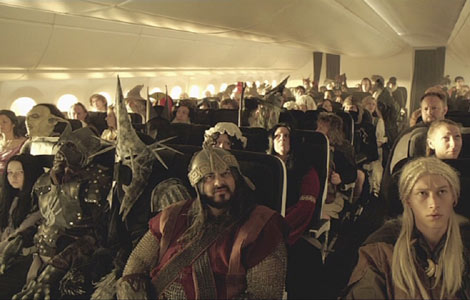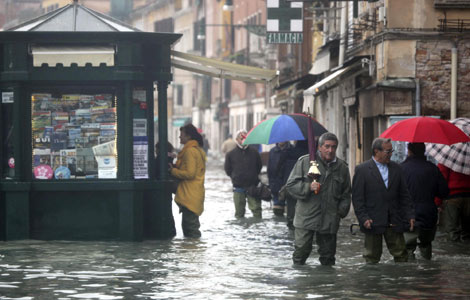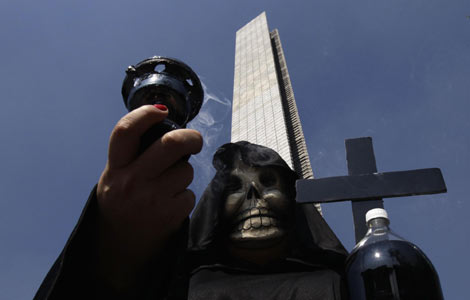
TEHRAN - As hopes grow to settle the Iranian nuclear standoff through diplomatic means, the country persists the recognition of its "nuclear rights."
The P5+1, five permanent members of the UN Security Council plus Germany, and Iran have been engaged in breathtaking negotiations over the latter's controversial programs over the past years, however, no breakthrough has come out of the intensive talks.
The West has been accusing Iran of secretly developing nuclear weapons under civilian disguise, a charge that has always been denied by Tehran.
Western reports said Tuesday that the European Union (EU) and the United States are looking forward to a diplomatic solution for Iran's nuclear issue.
EU foreign policy chief Catherine Ashton said Tuesday that she has plans to meet Iran's chief nuclear negotiator Saeed Jalili "soon," according to the reports. Besides, US Secretary of State Hillary Clinton also expressed hope on the day that the Islamic republic could seize the opportunity for the diplomatic settlement of its nuclear issue.
Also, Iran's Deputy Foreign Minister for Asia and Oceania Abbas Araghchi said Tuesday that his country is hopeful about the "success" of next round of nuclear talks with world powers, Press TV reported.
Araghchi expressed optimism that the next round of negotiations between Iran and the P5+1 over the country's nuclear program would be based on "goodwill and would end up in success," according to the report.
"All (necessary) facilities and opportunities for the peaceful settlement of issues between the two sides (over Iran's nuclear program) are provided, if the P5+1 shows goodwill in the next round of talks with Iran," he was quoted as saying.
In the meantime, Iran's Foreign Ministry spokesman Ramin Mehmanparast said Tuesday that in order to solve the nuclear issue, the P5+1 should have a " logical" approach towards Iran's nuclear program and Iran's nuclear rights, including the rights to produce fuel for peaceful nuclear activities, which should be recognized.
Iran has offered its viewpoints "clearly" in the previous talks with the P5+1 and has put forward a number of proposals and awaits their response, said Mehmanparast.
After Iran and the P5+1 held intensive talks in Moscow on June 18-19, they agreed to meet again in Turkey's Istanbul in July at the expert level. According to Ali Baqeri, Iran's deputy nuclear negotiator, the talks in Istanbul were "positive." However, no date and venue were set for further high-level negotiations.
Earlier this month, Iranian Foreign Minister Ali-Akbar Salehi said, "According to the latest negotiations, the (nuclear) talks between two sides will be held in November and possibly in late November."
About the recent Western media reports that there was an agreement for bilateral talks between Iran and the United States over Tehran's controversial nuclear program, Mehmanparast said Tuesday that such news was originated from the US sources and "domestically used for the US presidential elections."
On Oct 20, the New York Times reported that the United States and Iran had agreed for the first time to have one-on-one nuke talks after the upcoming US presidential elections.
The paper said the agreement was the result of intense and secret exchanges between officials of the two countries, which began almost immediately after US President Barack Obama took office in January 2009.
On Oct 21, Iranian foreign minister said that Iran would not hold "independent" talks with the United States outside the framework of nuclear negotiations with the P5+1.







